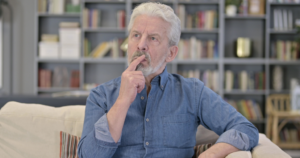You’d think being kind would make friendship easier.
But if you’re someone who genuinely cares about others—who listens closely, remembers birthdays, and shows up when it counts—yet still struggles to form deep, lasting bonds, you’re not alone.
Kind-hearted people can sometimes feel like they’re on the outside looking in. Not because they’re lacking warmth, but because of the invisible ways their inner world shapes their social life.
Let’s explore some of those patterns.
I hope it helps you reflect with compassion, not criticism.
1. They overgive without letting others in
Many kind-hearted people are natural givers.
They offer rides, remember your coffee order, check in when you’re sick.
But they rarely talk about their own struggles. They don’t want to be a burden.
So their relationships become lopsided—full of giving, but low on vulnerability.
When we don’t open up, we prevent others from seeing the full picture of who we are. And without that, emotional closeness has nowhere to grow.
I used to be like this in my twenties. I was generous, helpful, always available—but I kept my walls up. I thought independence made me strong. In truth, it just made me lonely.
2. They mistake niceness for connection
Being pleasant isn’t the same thing as being known.
Kind-hearted people often focus on being agreeable and accommodating. But deep friendships require the opposite too: disagreement, honesty, friction.
Without showing those more complex sides of ourselves, relationships stay surface-level.
You can be kind and still say no. Still set boundaries. Still show your real thoughts.
In fact, doing so creates the intimacy that kindness alone can’t sustain.
3. They’re deeply sensitive to rejection
Kind-hearted people often feel things more intensely than they let on.
One small slight—an unanswered message, a forgotten invitation—can sting more than they’d like to admit.
Because of this, they sometimes avoid initiating. They wait to be chosen instead of reaching out.
But friendship is rarely that neat. Sometimes you have to risk the awkward text or the one-sided effort.
Even when it doesn’t pan out, it’s not proof you’re unworthy. It’s just part of the messy dance of connection.
4. They tolerate imbalanced relationships for too long
When you have a big heart, you want to see the best in people.
You excuse bad behavior. You downplay how unsupported you feel.
And while that patience is beautiful, it can also keep you stuck in friendships that don’t nourish you.
Over time, you start to feel drained. Or worse, invisible.
The truth? Healthy friendships are mutual. If you’re always the one reaching out or compromising, it’s okay to let go.
5. They underestimate how much people actually like them
Most of us underestimate how much others like us after a first interaction.
It’s called the “liking gap.”
Kind-hearted people—especially those who are shy or introverted—tend to assume they’re forgettable or awkward. So they don’t follow up, even when someone would genuinely welcome more connection.
But what if the people you meet are just waiting for a signal from you?
What if they liked you more than you thought?
6. They carry unhealed stories from earlier years
For some, the struggle to form friendships doesn’t start in adulthood.
It traces back to childhood.
Maybe they were the “weird” kid, or the helper in a chaotic home. Maybe they learned early that being useful was safer than being authentic.
Those old roles don’t vanish—they evolve.
Even now, they may show up as people-pleasing, silence, or self-erasure in social settings.
One of the ideas from Rudá Iandê’s book Laughing in the Face of Chaos that really resonated with me is this:
“Being human means inevitably disappointing and hurting others, and the sooner you accept this reality, the easier it becomes to navigate life’s challenges.”
That quote shifted something in me.
I realized I’d spent years trying to earn love through perfection—never needing anything, never upsetting anyone.
But friendship isn’t built on perfection.
It’s built on showing up as a real, flawed person—and letting that be enough.
7. They don’t know how to take up space
When you’re kind-hearted, you might’ve been praised for being low-maintenance.
Not asking for too much. Not making waves.
But that conditioning can make it hard to feel like you deserve presence—like your voice, your opinions, your needs matter in a group.
So you stay quiet. You let others lead. And you slowly fade into the background.
Real closeness requires presence.
Not dominance, not attention-seeking—just the courage to be fully in the room.
8. They fear being “too much”
Here’s a paradox: many gentle, loving people feel like they’re too emotional or too intense underneath the surface.
So they rein themselves in.
They censor their excitement. They suppress their opinions. They numb their sadness.
But by muting those emotions, they lose the ability to connect deeply—because vulnerability is the very thing that makes others feel safe with us.
I’ve learned that the moments I shared what I was really feeling—especially when it felt raw or messy—were the moments people opened up the most in return.
Not everyone can meet you there.
But the ones who do? They’re the ones worth holding close.
9. They confuse loyalty with compatibility
Kind-hearted people are often fiercely loyal.
But sometimes, that loyalty keeps them stuck in friendships that no longer fit.
Just because someone’s been in your life a long time doesn’t mean they still belong in the intimate parts of it.
You can love someone and still recognize that your connection has shifted.
Letting go doesn’t make you cold or ungrateful.
It just means you’re making space for friendships that reflect who you are now—not who you used to be.
10. They forget to include themselves
This may be the most important one.
Kind-hearted people are often so focused on being there for others that they forget to check in with themselves.
Do you even enjoy the people you’re trying to connect with?
Do you feel energized after spending time with them—or quietly depleted?
Are you showing up because you want to, or because you feel like you should?
The more you practice self-awareness, the easier it becomes to find the right connections—ones that feel good on both sides.
And if you’re struggling to meet those people, maybe it’s time to gently let go of the masks.
Like Rudá Iandê says:
“Most of us don’t even know who we truly are. We wear masks so often, mold ourselves so thoroughly to fit societal expectations, that our real selves become a distant memory.”
Maybe friendship starts not with changing how others see you—but with reconnecting to who you really are.
Final thoughts
Being kind is a beautiful strength—but it’s not the only ingredient for closeness.
If you recognize yourself in some of these behaviors, don’t beat yourself up.
You’re not broken.
You’re just human. Maybe a little too cautious with your heart, a little too quiet with your needs.
But that can change.
The next time you feel that longing for deeper friendship, try this:
Share a little more. Ask for something small. Risk a bit of mess.
That’s where intimacy begins.







